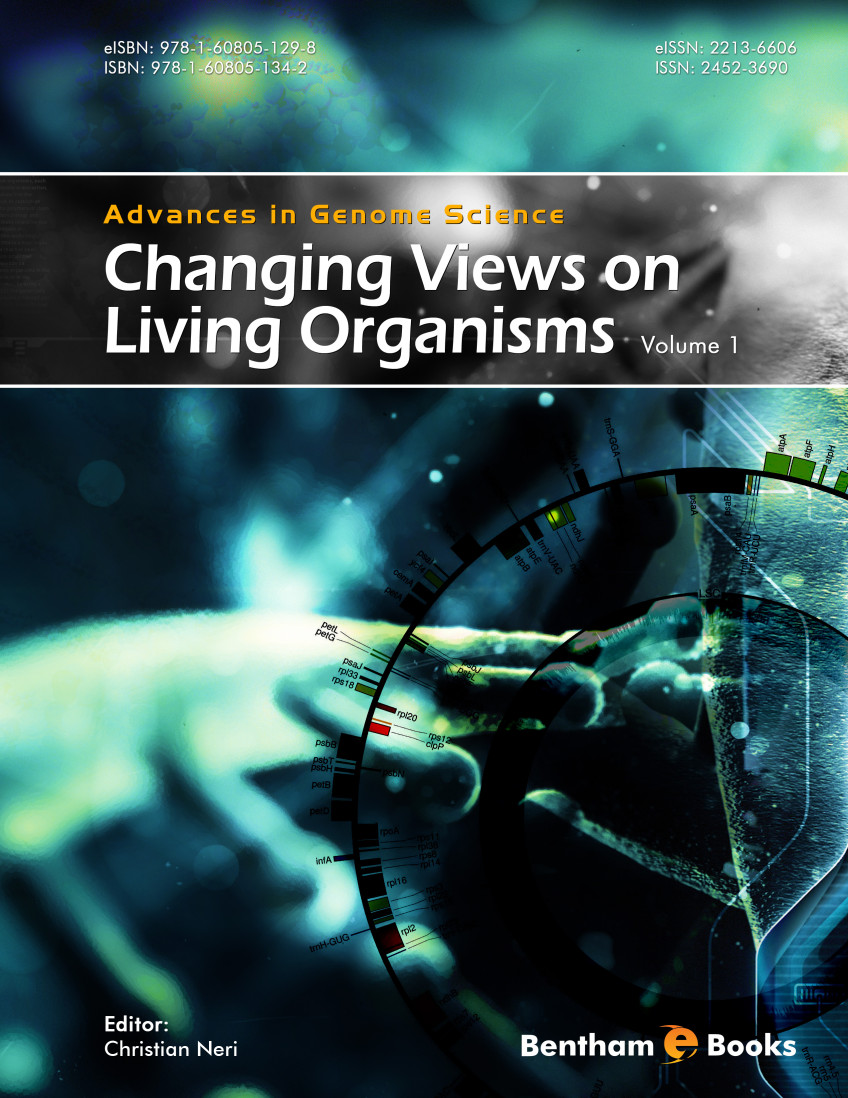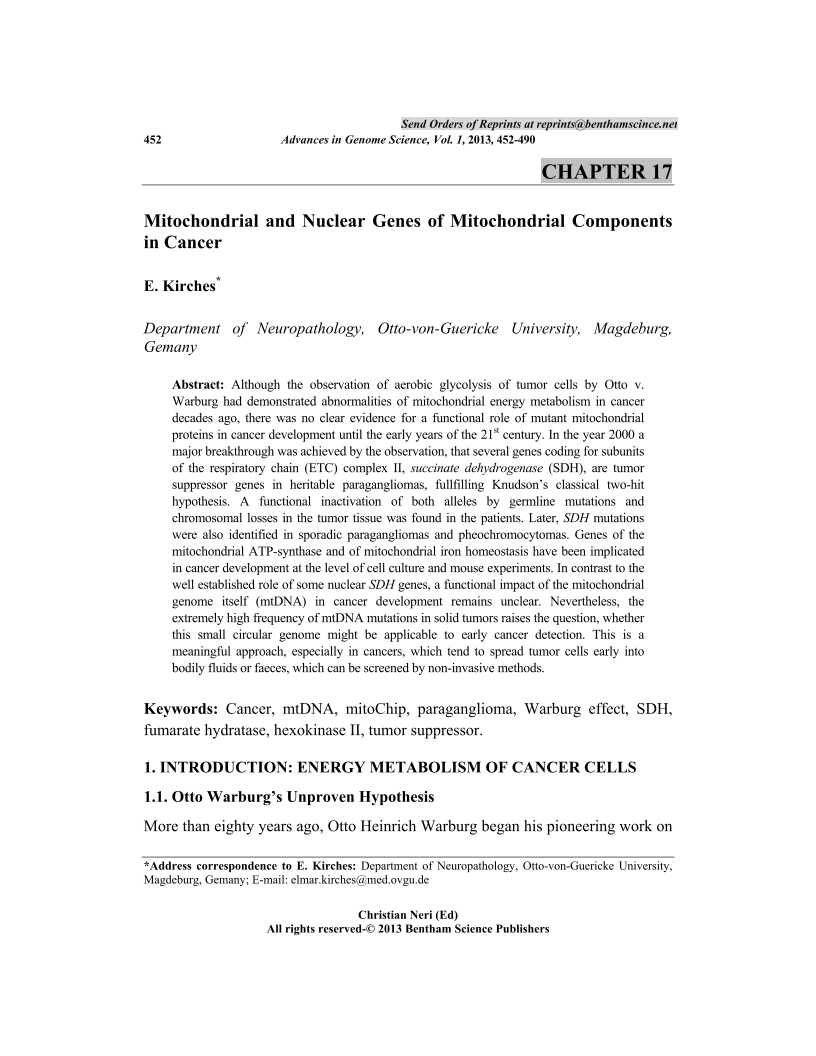Mitochondrial and Nuclear Genes of Mitochondrial Components in Cancer

- By E. Kirches
- Source: Changing Views on Living Organisms , pp 452-490
- Publication Date: March 2013
- Language: English
Mitochondrial and Nuclear Genes of Mitochondrial Components in Cancer, Page 1 of 1
< Previous page | Next page > /docserver/preview/fulltext/9781608051298/chapter-17-1.gif
Although the observation of aerobic glycolysis of tumor cells by Otto v. Warburg had demonstrated abnormalities of mitochondrial energy metabolism in cancer decades ago, there was no clear evidence for a functional role of mutant mitochondrial proteins in cancer development until the early years of the 21st century. In the year 2000 a major breakthrough was achieved by the observation, that several genes coding for subunits of the respiratory chain (ETC) complex II, succinate dehydrogenase (SDH), are tumor suppressor genes in heritable paragangliomas, fullfilling Knudson's classical two-hit hypothesis. A functional inactivation of both alleles by germline mutations and chromosomal losses in the tumor tissue was found in the patients. Later, SDH mutations were also identified in sporadic paragangliomas and pheochromocytomas. Genes of the mitochondrial ATP-synthase and of mitochondrial iron homeostasis have been implicated in cancer development at the level of cell culture and mouse experiments. In contrast to the well established role of some nuclear SDH genes, a functional impact of the mitochondrial genome itself (mtDNA) in cancer development remains unclear. Nevertheless, the extremely high frequency of mtDNA mutations in solid tumors raises the question, whether this small circular genome might be applicable to early cancer detection. This is a meaningful approach, especially in cancers, which tend to spread tumor cells early into bodily fluids or faeces, which can be screened by non-invasive methods.
-
From This Site
/content/books/9781608051298.chapter-17dcterms_subject,pub_keyword-contentType:Journal -contentType:Figure -contentType:Table -contentType:SupplementaryData105

